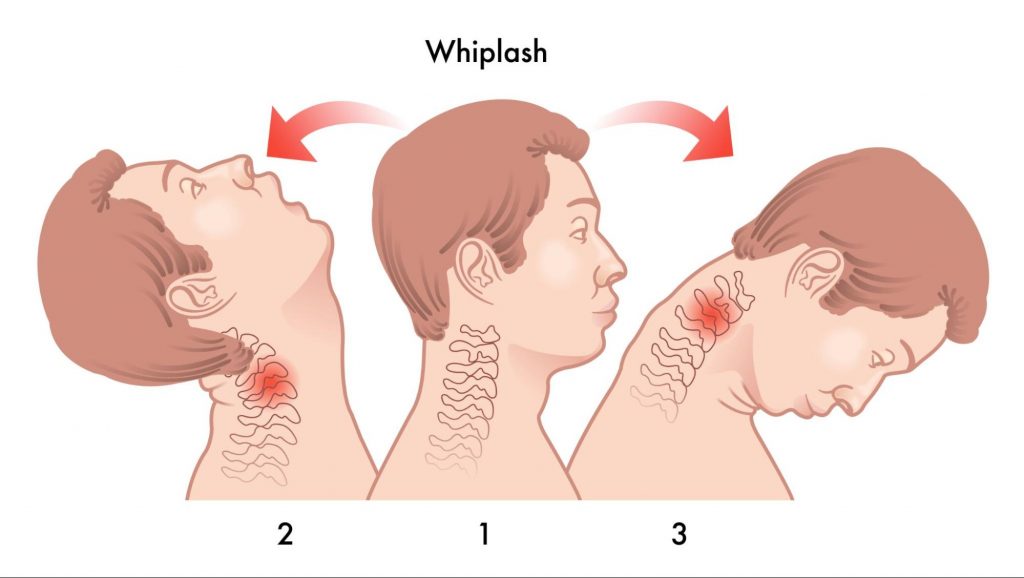The minimum payout for whiplash in Florida often starts around $7,500, but settlements can range from $10,000 to $100,000 depending on injury severity, treatment costs, and long-term effects. There’s no legal minimum, but several factors affect your compensation.
In this guide, we’ll walk through not just the average payout for whiplash in Florida, but also how much a whiplash victim should reasonably expect to receive based on their circumstances.
We’ll explore why some offers feel insultingly low, address whether it’s worth accepting $7,500 when you’re still in pain, and explain how to make informed decisions about your case.
You’ll also learn about Florida’s no-fault PIP system, how different treatments affect your claim and the risks of negotiating without legal support.
Minimum Payout for Whiplash in Florida
Florida does not impose a statutory minimum payout for whiplash injuries. Every case is unique, with compensation influenced by factors like medical costs, lost wages, and the severity of the injury. However, in practice, low-end settlement offers typically start around $7,500, especially when there’s little or no visible damage to the vehicle.
Some victims feel pressured to accept these offers despite ongoing pain or psychological distress, such as anxiety about driving again. Insurers often justify low offers by emphasizing minimal property damage and the subjective nature of soft tissue injuries like whiplash.
If you’re wondering, “What if I’m still in pain but the insurer only offers $7,500?”, this is a legitimate concern. Accepting a low offer may leave you without adequate resources for future medical care or lost wages. Consulting a qualified attorney before agreeing to any settlement can help ensure your long-term needs are considered.
What is the Average Payout for Whiplash in Florida?
For minor whiplash injuries, such as those requiring physical therapy or chiropractic care, the average settlement typically falls between $10,000 and $20,000. These amounts cover basic medical expenses and short-term impacts like missed workdays.
However, when whiplash results in serious complications, such as requiring surgical intervention, injections, or leading to permanent disability, settlements can escalate significantly. It’s not uncommon for severe cases to reach $100,000 or more.
For example, in a recent South Florida case, a claimant with herniated discs and nerve damage underwent radiofrequency ablation and ultimately settled for $97,500. This case illustrates how invasive treatment and long-term impact directly influence settlement amounts.
How Much Should a Whiplash Victim Receive?

The compensation a whiplash victim receives depends on several factors:
- Medical expenses: ER visits, diagnostics, therapy, surgeries
- Lost wages: Time away from work during recovery
- Pain and suffering: Physical discomfort and emotional strain
- Long-term disability: Permanent limitations or chronic symptoms
Insurers and courts often apply a severity multiplier when calculating damages. This method adjusts the base economic losses by a factor reflecting the intensity and permanence of the injury. For example, minor injuries might be multiplied by 1.5, while severe, disabling injuries could warrant a multiplier of 5 or higher.
The severity of your whiplash plays a major role in your payout; for specifics on more severe cases, see:
What Factors Influence Whiplash Compensation in Florida?
The Role of Florida’s No-Fault PIP Insurance
Florida operates under a no-fault system, meaning all drivers must carry Personal Injury Protection (PIP) insurance. This coverage pays for your initial medical expenses and lost wages, up to policy limits, regardless of who caused the accident.
However, PIP has its limits. If your injuries are severe, defined by Florida law as significant, permanent loss of a bodily function, or permanent injury, you can step outside the no-fault system and file a claim against the at-fault driver. This opens the door to recover additional damages, particularly for pain and suffering, which PIP does not cover.
The Importance of Medical Records and Immediate Treatment
Prompt and thorough medical treatment is a cornerstone of a successful whiplash claim. Insurers often scrutinize the timing and consistency of your medical care. Delays or gaps can be used against you, suggesting that your injuries aren’t as severe as claimed.
Detailed medical documentation, including diagnoses, treatment plans, and progress notes, substantiates your injury and justifies your demand for compensation.
A frequent concern we hear is: “Does continuing treatment after settlement affect future compensation?” Once you accept a settlement and sign a release, you forfeit the right to pursue additional compensation for that injury. This is why it’s critical to fully understand the extent of your injury before settling.
Florida’s strict 14-day rule requires accident victims to seek medical attention promptly—learn more here: Florida 14-Day Accident Law | What You Need To Know.
Type of Medical Treatment Matters
The nature of your medical treatment can dramatically impact your settlement. Conservative care, like chiropractic adjustments or massage therapy, often leads to lower settlements, as insurers may view these treatments as less indicative of severe injury.
By contrast, invasive treatments, such as steroid injections, nerve ablations, or surgery, signal more serious harm, warranting higher compensation. Some victims even self-pay for additional care after exhausting PIP benefits, reflecting the gap between insurance coverage and actual recovery needs.
Impact of Psychological Effects
Beyond physical symptoms, many whiplash victims experience psychological distress, including anxiety about driving. This emotional fallout can significantly impact daily life and recovery.
Fortunately, Florida law allows for compensation related to non-economic damages, such as emotional distress, mental anguish, and loss of enjoyment of life.
A common worry is: “I’m afraid to drive now, does this affect my claim?” Yes, this anxiety can be factored into your compensation through non-economic damages. However, it must be properly documented by healthcare professionals, such as psychologists or therapists, to strengthen your claim.
How Much Will Actually Go in Your Pocket?
If you’ve ever looked at a settlement check and thought, “Where did all the money go?”, you’re not alone. Most personal injury attorneys work on a contingency fee basis, typically taking 33% to 40% of the total settlement as their fee. This fee structure ensures you don’t pay out of pocket upfront, but it does reduce your final payout.
Another factor affecting your net compensation is medical liens. Healthcare providers and insurance companies often place liens on your settlement to recover the cost of treatments. However, skilled attorneys can often negotiate these medical bills down, allowing you to keep a larger share of your settlement.
A concern I hear frequently is: “My attorney is pressuring me to settle, is this for their benefit?” It’s a valid question. While many attorneys act in their clients’ best interests, some may encourage quicker settlements to avoid the time and costs of litigation. Always ask your attorney to explain the pros and cons of any proposed settlement before agreeing.
The Effect of Policy Limits
The insurance policy limits of the at-fault driver play a major role in determining the maximum possible settlement. Higher policy limits generally mean there’s more money available for compensation.
For instance, commercial vehicles often carry significantly higher coverage than personal vehicles. In one notable case, a client secured a $97,500 settlement thanks to the at-fault driver’s $2 million commercial policy.
This raises a critical question: “How does the at-fault driver’s policy limit affect my payout?” Simply put, the insurer will not pay more than the policy limit, no matter how severe your injuries. This makes identifying all available insurance coverage, including potential umbrella policies, essential for maximizing your settlement.
Key Steps to Maximize Your Whiplash Settlement
- Seek immediate medical attention: Delaying care can harm both your health and your claim.
- Keep detailed records: Document every symptom, treatment, and expense to support your case.
- Be cautious with statements: Avoid minimizing your injury, especially in communications with insurers.
- Consider professional representation: An experienced personal injury attorney can navigate legal complexities and negotiations on your behalf.
Final Tips
- Don’t rush into a settlement if you’re still experiencing symptoms. Future complications can arise, and once you settle, you forfeit the right to additional compensation.
- Be mindful of Florida’s 2-year statute of limitations for personal injury claims. Missing this deadline will bar you from recovery.
- Ensure that your settlement includes all applicable damages, both economic (like medical bills) and non-economic (like pain and suffering).
Know Your Worth and Protect Your Rights
You’re not alone in feeling overwhelmed by the complexities of whiplash claims in Florida. Navigating the nuances of insurance policies, medical expenses, and settlement negotiations can feel daunting. But with the right knowledge and professional support, you can make informed decisions that protect your health and financial future.
If you’re uncertain about your next steps, contact Applebaum Accident Group. We’ll connect you with top-rated attorneys who understand the intricacies of whiplash settlements and can help you pursue the full compensation you deserve.
Our mission is simple: to ensure that accident victims like you are never left navigating this process alone.
Ready to Secure the Settlement You Deserve?
When you’re dealing with the minimum payout for whiplash in Florida, the real challenge isn’t just knowing what your case might be worth, it’s knowing how to fight for it. Lowball offers, confusing insurance policies, and pushy adjusters can leave you under-compensated, especially if you’re still suffering from pain, anxiety, or long-term medical needs.
At Applebaum Accident Group, we know this story all too well. That’s why we provide solutions designed to take the stress off your shoulders and put you on the path to a fair settlement.
Here’s how we can help you:
- Attorney Matching – We connect you with experienced personal injury attorneys who specialize in maximizing whiplash settlements, ensuring your claim reflects the full extent of your injuries, both physical and emotional.
- Medical Network Access – Through our industry connections, you’ll gain access to qualified medical providers who can properly document your injuries and support your claim.
- Payout Clarity – Our partners help you understand every aspect of your potential compensation, from medical bills to non-economic damages like emotional distress, so you never feel left in the dark.
No more second-guessing whether your settlement is fair. No more feeling pressured into accepting less than you deserve. With us, you gain the confidence and resources to pursue the best possible outcome for your whiplash claim.
📞 855-225-5728 | Request An Appointment





